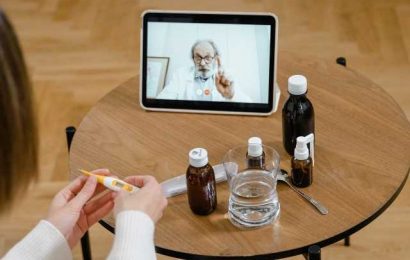TOPLINE:
Interactions with colleagues initiating buprenorphine in the emergency department (ED) for opioid use disorder (OUD) increased the odds of self-adoption, suggesting the impact of social factors in practice uptake.
METHODOLOGY:
-
This post hoc secondary analysis of the EMBED trial included 1026 unique clinicians (10,240 pairwise interactions) in 18 ED clusters across five healthcare systems.
-
Clinicians included attending physicians, residents, and advanced practice practitioners.
-
The factors associated with the adoption of the practice of ED initiation of buprenorphine in 7831 patient visits for OUD were evaluated.
-
A clinician who had not yet initiated buprenorphine but was on a care team with another clinician who had initiated it, depicted an ‘exposure event’ that accounted for 7% of the total pairwise interactions.
TAKEAWAY:
-
Of 7831 ED patient visits for OUD, 9.3% resulted in an initiation of buprenorphine.
-
At the end of the study, 22% of the clinicians had initiated buprenorphine at least once and 14.6% were exposed to buprenorphine initiation at least once.
-
The cumulative exposure to other clinicians initiating buprenorphine in the ED was associated with the self-practice of buprenorphine initiation:
-
One exposure: hazard ratio [HR], 1.31; 95% CI, 1.16-1.48.
-
10 exposures: HR, 3.55; 95% CI, 1.47-8.58.
IN PRACTICE:
In an invited commentary, Scott G Weiner, MD, MPH, Brigham and Women’s Hospital, Boston, wrote, “These interactions were considered contagious, because those who had not previously initiated patients on buprenorphine were then more likely to do so, and there was a clear dose-dependent rate of converting from a nonadopter to an adopter increasing with the number of exposures.”
He further concluded, “By combining several processes—implementation facilitation, clinical decision support, exposure to colleagues who have experience treating with buprenorphine, and intentionally training buprenorphine initiation as a procedure—perhaps practice will finally change, and patients with OUD will have improved outcomes.”
SOURCE:
This study was led by Evangeline Gao, Department of Emergency Medicine, Yale University School of Medicine, New Haven, Connecticut. It was published online on November 10, 2023, in the JAMA Network Open.
LIMITATIONS:
-
The study lacked data on buprenorphine prescriptions before the study began, which might have depicted low buprenorphine usage across various sites.
-
The perception of some physicians, perceived as local champions, may have impacted their colleagues and subsequently affected the outcomes.
-
Ordering of buprenorphine for ED administration must be separated from prescribing it for outpatient use, as the requirement of X-waiver for outpatient use might affect the findings.
DISCLOSURES:
-
The study was supported by the National Institutes of Health (NIH) Common Fund within the US NIH Health Care Systems Research Collaboratory.
-
Dr Melnick reported receiving grants from or having other ties with various sources, such as the American Medical Association, outside the submitted work.
Source: Read Full Article
-


